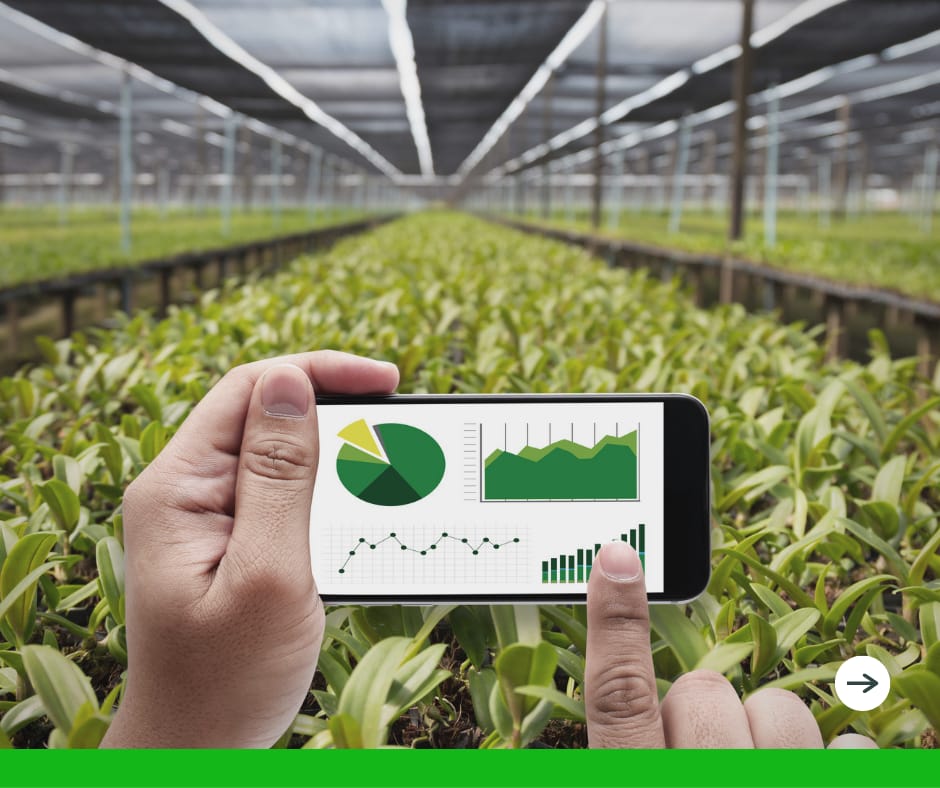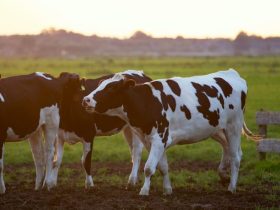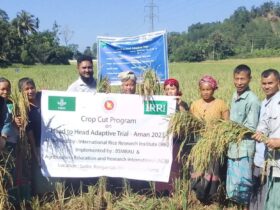It’s a good idea to have a backup plan in case the backup fails. In order to improve sustainability and find more productive farming practices, agricultural technologies have arisen. All digitalization and automation processes in business and daily life are included in this, including those using Big Data, AI, robotics, the Internet of Things (IoT), virtual and augmented reality, and robots. Our lives are being significantly impacted by these technological developments. Precision agriculture is the next step in terms of technology. This gives farmers a data-driven approach to successfully cultivating and preserving crops on arable land while utilizing the majority of their available resources. Daily activities generate enormous amounts of data throughout the supply chain. The majority of this information was previously untapped, but with big data technologies, it can now be utilized to boost any crop’s performance and output.
The term “smart agribusiness” refers to the use of digital technologies to boost the productivity of all parties involved in interconnected and interdependent value chains in agriculture. The main objective of smart agribusiness is to employ digital technologies to increase profit for all stakeholders along the value chain while ensuring the sustainability of the economy, environment, and natural resources. Crops, livestock (and other animal-based products like honey and milk), fisheries, and non-food items are the four areas of agriculture where Smart Agribusiness finds applications (such as leather and textile).
A trend called “smart farming” places a focus on using information and communication technologies in the cycle of managing a cyber-physical farm. More robotics and artificial intelligence will likely be used in farming as a result of new technologies like the Internet of Things and cloud computing.
Advanced Technologies for Smart Agribusiness:
Digital technology, which is a component of the so-called “Fourth Industrial Revolution (4IR),” is what allows for smart agribusiness. Digital technologies have expanded quickly as a result of advancements in hardware scalability, Internet of Things (IoT), greater internet connectivity, computing and data storage performance, accessibility, and cost. Digital technologies have the potential to boost innovation, reduce costs associated with solution scaling, increase transparency, and support an informed, evidence-based transformation of the agriculture industry.
Conditions needed to enable smart agriculture businesses:
For Smart Agribusiness to have a positive effect on the agriculture sector throughout a region, a few fundamental prerequisites or restrictions must be overcome. They include:
- Rural infrastructure and connectivity;
- Affordable Internet access;
- widespread digital literacy;
- A culture of rural entrepreneurship; and
- Assistance from the government and institutions.
Another crucial requirement for Smart Agribusinesses, particularly in ICs and rural regions, is digital literacy. Not only is basic reading necessary for the development of Smart Agriculture, but also data processing and communication abilities. Digital literacy can encompass the most basic IT abilities (such as utilizing a mobile phone, a weather station, or buying or selling items online) all the way up to the most complex ones (e.g. fertilization planning using satellite imagery). Digital education needs to advance quickly in communities where even the most fundamental abilities are inadequate (as in the case of ICs). When reflecting on the global advancement of digital literacy, it is important to keep in mind that, due to gender-specific disparities in digital literacy and technology use, female and male workers are likely to be affected differently. The development of digital skills is also being held back, especially in rural areas. A model of digital skills training for farmers and other vulnerable groups along the agribusiness value chains are required in order to teach them how to evaluate and use best practices and technologies for their farm company.
For Smart Agriculture to be successful, a rural entrepreneurial culture is particularly crucial. The formation, development, and scaling-up of “digital start-ups,” especially in the agriculture and food industry, is being supported by an expanding number of global initiatives. A long-term political and practical approach, beginning with suitable teaching in schools, is required to create a sustainable entrepreneurial culture for Smart Agribusiness. It requires an enabling environment that promotes risk-taking, trust-based relationships between stakeholders, financial opportunities, professional services, a sustainable digital ecosystem, the availability of necessary skills, and an attitude of sharing or ‘open innovation’. If rural women and youth actively participate in the digital ecosystem, smart agribusiness programs and investments will be more long-lasting.
This can be accomplished, for instance, by enhancing their skills and encouraging entrepreneurship, guaranteeing fair access to services and resources that are productive, enhancing involvement in decision-making, and better addressing socio-cultural concerns in the policy.
Opportunities Related To Smart Agribusiness Activities:
The problems that occur at various stages of the value chains for agriculture give rise to opportunities. The four areas of agriculture—are crops, livestock, fisheries, and non-food products.
Each offers several potentials to advance the current state-of-the-art. Smart Agribusiness offers these opportunities.
Agriculture 4.0 is a market trend that can’t be stopped and can’t be turned around. Using personal cell phones, these technologies might connect people’s current connectivity. Smartphones, IoT, and AI have helped to facilitate the gradual integration of communication and information technologies into the psycho-social structures of people, cities, and industries. Because of how simple and affordable these technologies are to use, there is a tremendous amount of untapped potential. Because of the current global population growth, resource scarcity, and climate change, agriculture is currently severely stressed. Agriculture 4.0 can be helpful in this case since it boosts crop output, enhances crop management choices, lessens the environmental effect of agricultural practices by using fewer chemicals, and lowers expenses for things like power, water, and gasoline. In order to ensure farmers’ livelihoods and food security in a changing climate, climate-smart agriculture aims to adapt to and mitigate the effects of climate change by sequestering carbon in the soil, reducing greenhouse gas emissions, and raising the productivity and profitability of farming systems. IoT and precision farming strategies will converge to create a network of networked new farming equipment.
Contact:
If you have any questions, thoughts, or suggestions, please contact us or join our social media networks.
Email us: [email protected], [email protected]
Feel free to comment:
Your email address will not be shared with anyone.
Join our LinkedIn group
https://www.linkedin.com/groups/13943442/
Join our Facebook group
https://www.facebook.com/groups/agribusinesseducationandresearchinternational
You may read:
Agribusiness operational decision-making tools – Agribusiness Education and Research International
The Dollar Crisis and Agro Enterprise Management – Agribusiness Education and Research International
https://agribusinessedu.com/why-is-market-information-important/
Agribusiness value chain in Southeast Asia – Agribusiness Education and Research International
You May Read: What are the Characteristics and Traits of an Entrepreneur? – Agribusiness Education and Research International
You may read: Agribusiness how it works? – Agribusiness Education and Research International
You may read: Covid -19 Pandemic Impact on Agribusiness – Agribusiness Education and Research International
You may read: What is Agribusiness? – Agribusiness Education and Research International
You may read: Agribusiness in Bangladesh – A Basic Introduction – Agribusiness Education and Research International
You may read: Organic Agriculture Introduction – Agribusiness Education and Research International
You may read: What is Sustainable Agriculture? – Agribusiness Education and Research International
What is Permaculture? – Agribusiness Education and Research International
E-Commerce and Supply Chain Finance – Agribusiness Education and Research International
What is Supply Chain Finance? – Agribusiness Education and Research International
What is an agile supply chain in Agribusiness? – Agribusiness Education and Research International
What is Supply Chain Management in Agribusiness? – Agribusiness Education and Research International
Supply chain management and Agribusiness – Agribusiness Education and Research International
Factors Affecting Supply Elasticity – Agribusiness Education and Research International






Leave a Reply